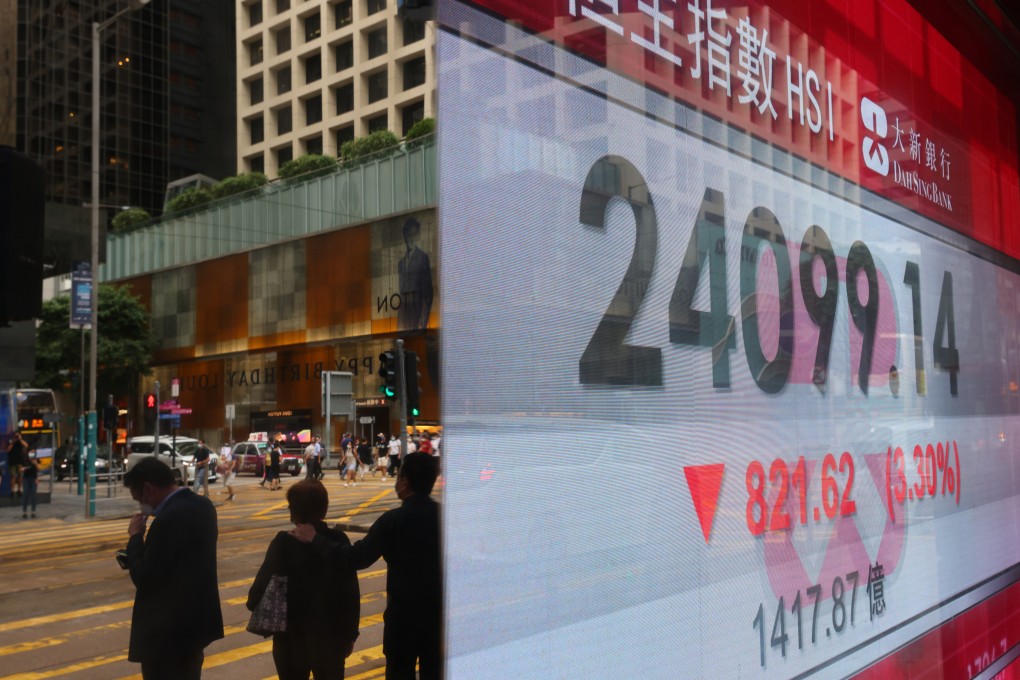China stocks dip after data shows economy’s contraction, while cuts in mortgage rates boost property developers in Hong Kong
- Shanghai Composite Index drops 0.3 per cent while Hang Seng Index rises 0.3 per cent as property developers such as Country Garden and Longfor Group rallied
- Both Chinese industrial production and retail sales contracted last month

The Shanghai Composite Index lost 0.3 per cent to 3,073.75 at the close, the biggest loss since April 26. The Shenzhen Composite Index in southern China fell 0.3 per cent to 1,926.01. The Hang Seng Index rose 0.3 per cent at the close to 19,950.21 in see-sawing trading, with the benchmark changing directions 10 times throughout the trading day.
Alibaba Group Holding, China’s largest e-commerce platform an owner of this newspaper, rose 2.9 per cent to HK$84.60. Xiaomi, one of China’s largest maker of smartphones, rose 0.7 per cent to HK$11.12. Baidu, China’s dominant internet search engine, rose 2.1 per cent to HK$113.20 in Hong Kong.
Country Garden Holdings rose 10.4 per cent to HK$4.88, while Longfor Group Holdings advanced by 4.8 per cent to HK$38 on the Hong Kong exchange, Chinese regulators cut mortgage rates for first-time homebuyers in a bid to spur growth. China Overseas Land and Investment (Coli) gained 2.2 per cent to HK$23.70.
